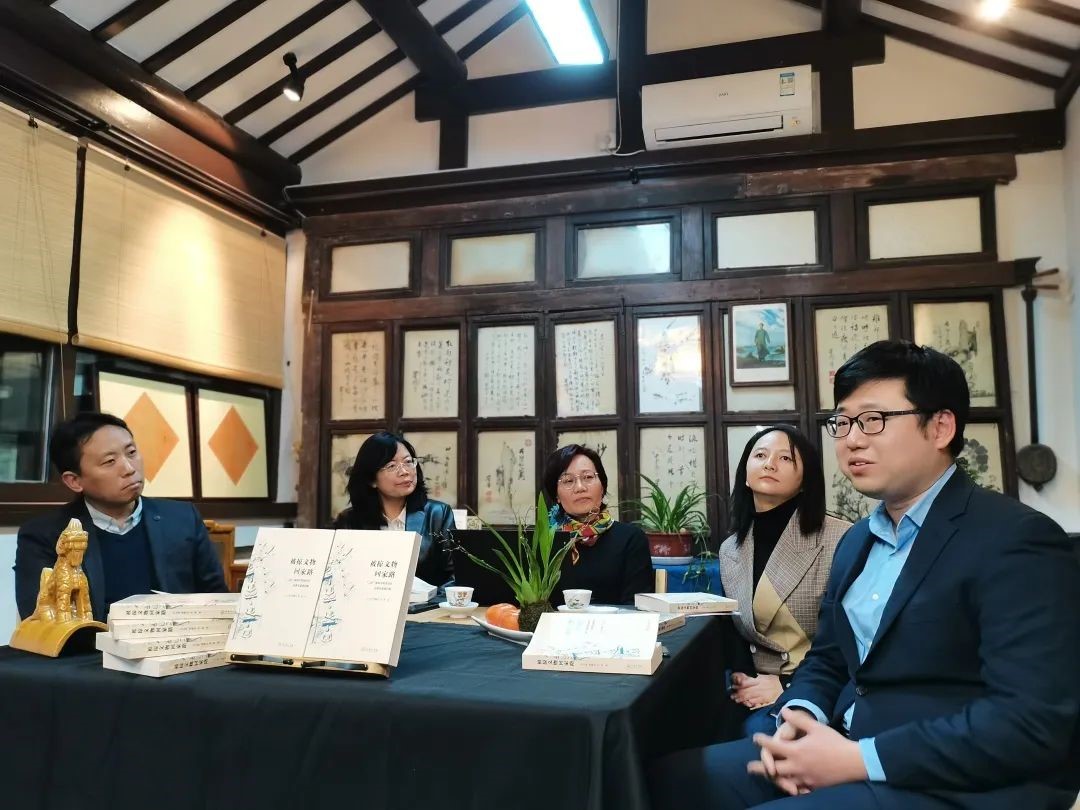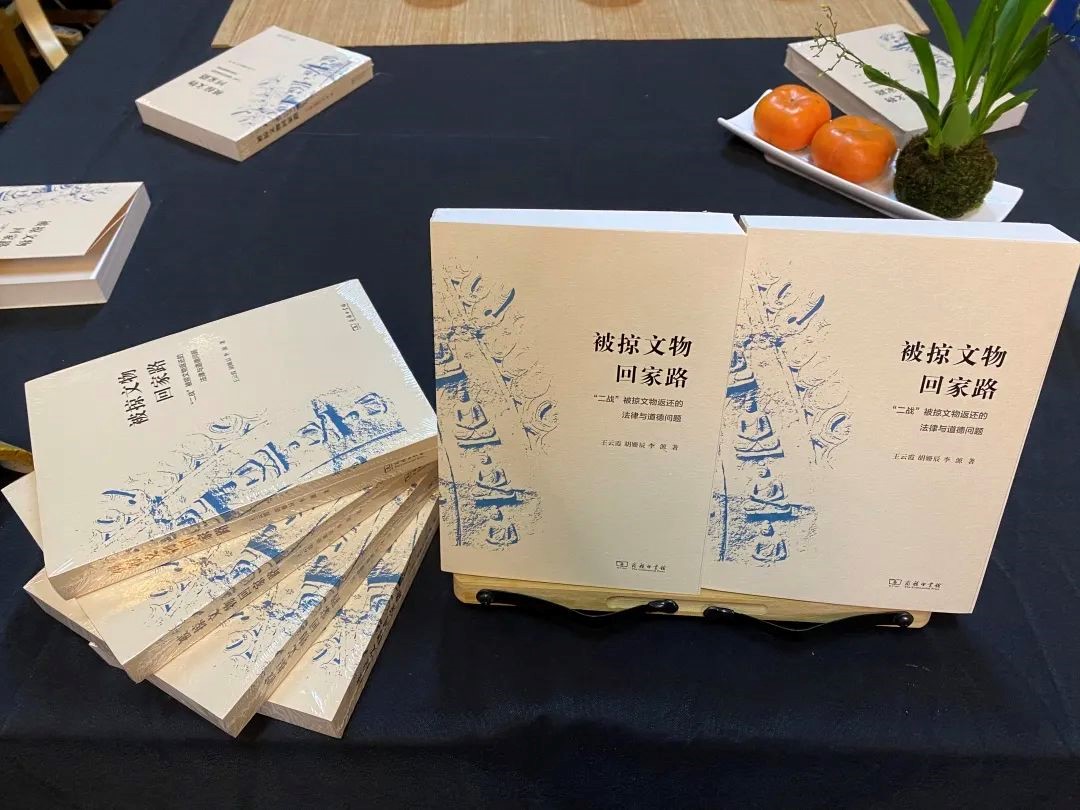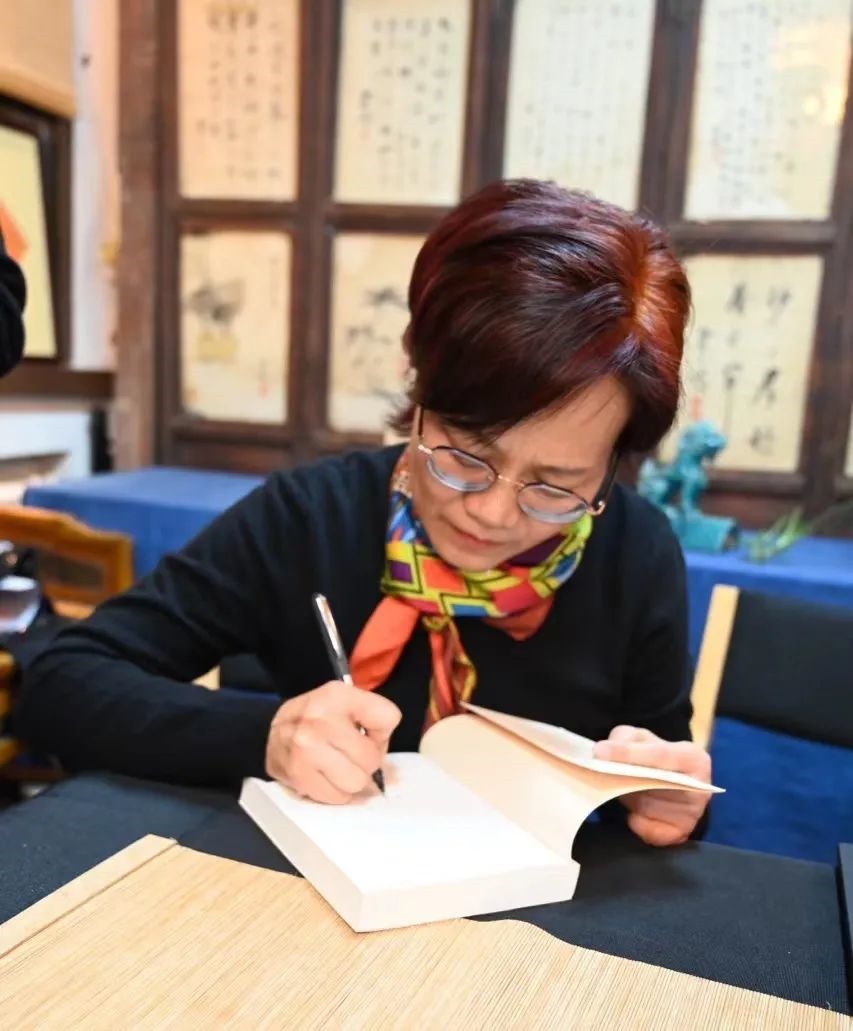Members of the UNESCO Chair on CHL participate in the book sharing salon titled "The Way Home of Looted Cultural Relics"
Date:2021/12/11 16:18:07
The new book sharing salon titled The Way Home of Looted Cultural Relics: Legal and Ethical Issues in the return of Looted Cultural Relics from World War II, was held by the Beijing Cultural Heritage Protection Center and the Commercial Press on the evening of December 9, 2021, the 86th anniversary of the outbreak of the "12 · 9" student strike, at Courtyard Institute located in the Zhonglao Hutong in Beijing, which was once a secret joint place in the student strike. The salon was hosted by Mr. Hu Xinyu, director of Beijing Cultural Heritage Protection Center and founder of Courtyard Institute. Authors of this book, Prof. Wang Yunxia, holder of the UNESCO Chair on CHL, Dr. Hu Shanchen, lecturer of Law School of Minzu University of China and Dr. Li Yuan from Renmin University of China, shared their writing experience at the salon. Dr. Chai Rong, professor of Law School,Beijing Normal University, was invited to make comments on the book. The salon was broadcast online through Wechat video and Bilibili live broadcast room.

During the World War II, a large number of cultural relics were looted from original countries or illegally transferred. The return of looted cultural relics involves the interest relations between origin countries and the market countries, as well as between the original owner and museums, collectors, dealers and the public. The book put the issue in the international vision. It compared the theory and practice of European and American countries dealing with the return of cultural relics looted by Nazi Germany, and then drawn on the useful experience of South Korea in recovering cultural relics looted by Japan, so as to provide a possible way to resolve the issue in China.

Professor Wang pointed out that the return of cultural relics looted during World War II was a major international problem and a special historical legacy that concerned regional stability and the harmonious development of human society. As one of a victimized countries in World War II, China had a large number of cultural relics that were looted by Japan and had not been returned yet. However, this issue had not received international and domestic attention. Therefore, it was urgent for scholars to rationally explain relevant theoretical and practical problems and seek solutions.
Professor Chai sorted out the situation of Japanese plundering of Chinese cultural relics in modern times. Japan had been coveting Chinese cultural relics for a long time. From the late Qing Dynasty to the Lugou Bridge Incident, Japan stole and plundered Chinese cultural relics in the name of archaeological research. After the war of Resistance against Japan broke out, Japan blatantly plundered Chinese cultural relics systematically. During the period of the Republic of China, although there was a general survey of the losses suffered by Chinese cultural relics during the war, only a very limited part of them were recorded, and there was no complete statistical data so far, which required further investigation and research.
During the dialogue, the participants also analyzed the main reasons for the failure of the return of Japanese looted cultural relics, and sorted out the recovery measures that China could take at present based on the practice of the return of Jewish works of art. Professor Wang pointed out that a special cultural relics recovery agency should be set up to carry out systematic investigation. We should also give full play to the role of ADR to promote mutual benefit. At the same time, the opportunity for a political solution should not be abandoned. Prof. Chai pointed out that given the wave of returning cultural relics from former African colonies in Europe and the United States, except for those looted during World War II, cultural relics looted by Japan since the war should be included in the scope of restitution.
Volunteers from Beijing Cultural Heritage Protection Center who participated in the salon offline and the audience who watched the live broadcast in the live broadcast room online actively expressed their opinions and asked questions to the guests during the event. Dr. Hu and Dr. Li discussed and answered the concerns of readers and audiences. Some viewers asked whether it was worth advocating for patriotic entrepreneurs buying looted cultural relics back to China at a high price. Participants said that purchase was not desirable because it did not distinguish whether the current owner who possessed the lost cultural relics was legal. As a result, it was not conducive to the recovery of looted cultural relics, and might increase the risk of loss of existing cultural relics. When it comes to the disappearances of Beijing cranium fossil, guests thought that there were many kinds of speculation about the missing. Although it had not been found yet, there was no doubt that it belongs to the looted cultural relic during the war. Once found, it should be unconditionally returned to China. Regarding the role that the public could play in the recovery of looted cultural relics, participants pointed out that the public could also contribute to the recovery and return of lost cultural relics, including by not purchasing or helping to purchase (including buying back) illegally looted cultural relics or. If clues of lost cultural relics were indeed found, they shall be promptly reported to the relevant departments. The public could also pay attention to some influential NGOs focusing on the return of cultural relics, and provide publicity and assistance within our capacity.
The book sharing salon has been widely welcomed by the public, with more than 4,000 people watching the salon through Wechat video accounts and Bilibili live streaming. The audience actively interacted with the participants, and dozens of questions or comments were received in the live broadcast room. The explanations by the participants were highly recognized by the audience, reflecting the public's concern and support for the protection of cultural relics in China, especially the pursuit of looted cultural relics. It is believed that with the joint efforts of Chinese government agencies, experts and scholars, folk cultural heritage protection organizations, news media and the public, the looted cultural relics will eventually be returned to the motherland.
Some audience who actively asked questions and interacted in the live broadcast room got books signed by the authors.




